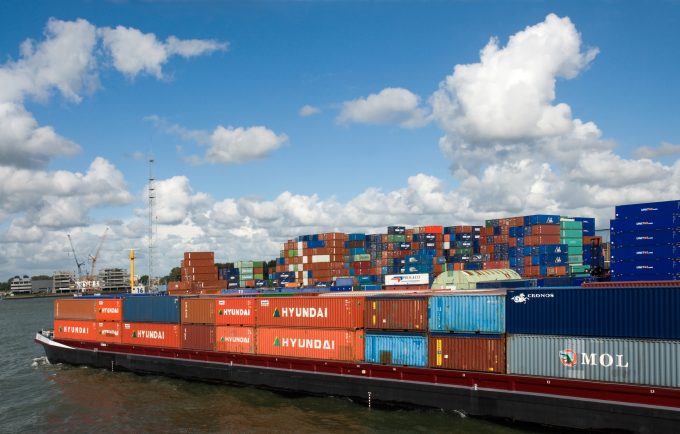Trend for vertical integration may not be right for multimodal transport
Carriers and shippers with ambitions to be integrators looking to “take the forwarder out” of ...

Barge operators have denied any responsibility for the congestion plaguing inland container terminals across Benelux ports.
Spokesperson for Contargo Heinrich Kerstgens told The Loadstar that, while fragmentation had hit the industry, the impact on operations had been minimal.
“I can’t agree with the finger-pointing towards operators – you can’t run half-full barges over a prolonged period, as it doesn’t cover the costs,” he said.
“There is fragmentation in the market, though, which causes operators to run their barges with a cargo mix for multiple ...
Volcanic disruption at Anchorage could hit transpacific airfreight operations
Macron calls for ‘suspension’ – CMA CGM's $20bn US investment in doubt
De minimis exemption on shipments from China to the US will end in May
Forwarders stay cool as US 'liberation day' tariffs threaten 'global trade war'
Shippers snap up airfreight capacity to US ahead of tariff deadline
Looming Trump tariffs will create 'a bureaucratic monster' for Customs
Mixed response in US to 'Liberation Day', while China leads wave of retaliation

Comment on this article
Gunther Ginckels
March 08, 2018 at 3:10 pmMr Kerstgens confirms the analysis of “The Source”. Its nobody’s fault. Operators running 240 TEU barges serving 5 oceanterminals in a port like Antwerp with left and rightbank terminals where 60% of these bargecalls feed less than 15 moves?? Its not the operators fault. labour and berthing capacity shortage? Its not the terminals fault. Dumping 5,000 ++ TEU from one ULCC? Its not the shipping lines fault. So please in the name of the small single barge owners; don’t change anything and continue to run inefficient inland navigation operations as for the past 10 years. And don’t invest in joint solutions where all stakeholders contribute and benefit from sustainable and efficient inland navigation operations.
Hein Kerstgens
March 10, 2018 at 2:02 pmOur experience is, that it is nearly always better to ask for a smaller berthing window than for a really big one (>100 moves). We could easily do that, but the we have to wait much longer for an slot appointment. That is in my option due to the fact that there is simply no enough capacity available and it is more often possible to take a small lot in between the big ocean vessels and shortsea feeders. If capacity is not available either because of missing crane capacity, to little stuff resources or because of economical reasons than there is no capacity – full stop.